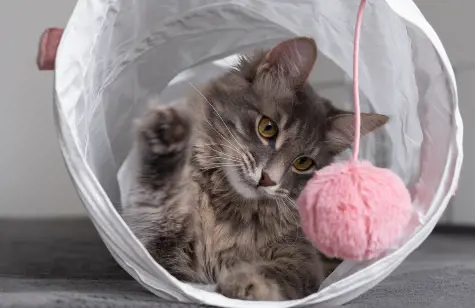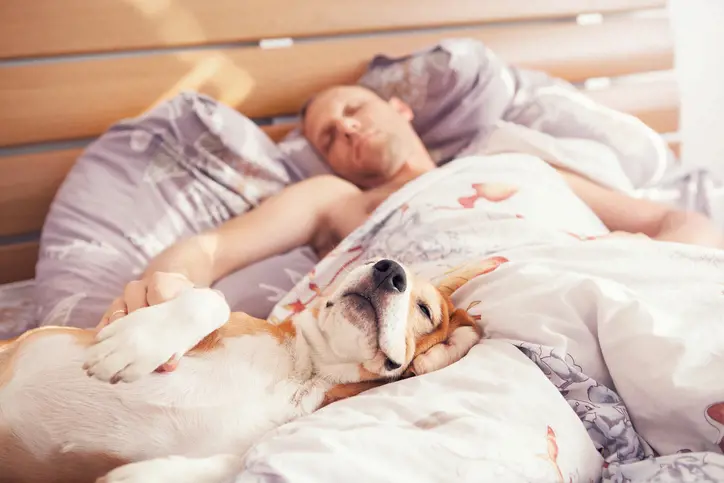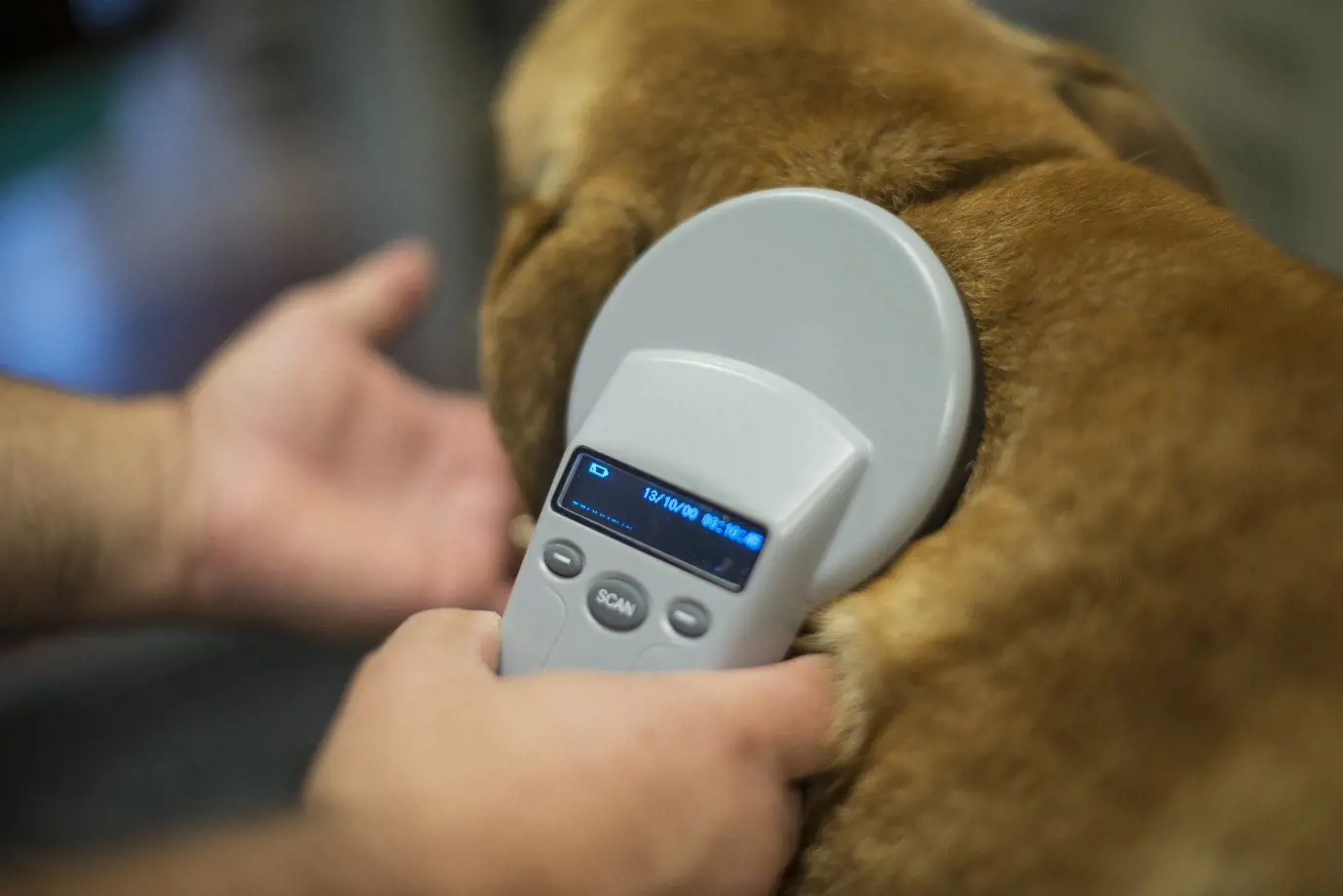Why is my cat meowing so much all of a sudden?
28th February, 2024
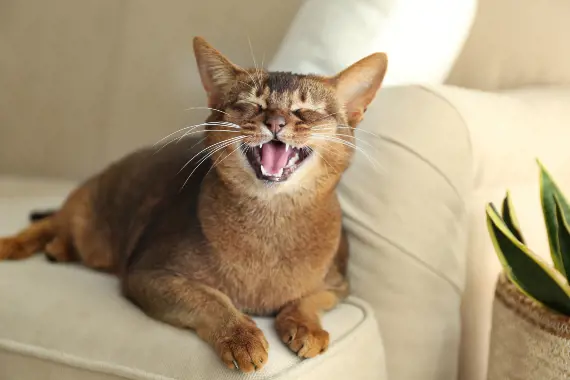
Cats, being the expressive creatures they are, communicate with us through a variety of ways, and meowing is one of the most apparent. But what does it mean if your feline friend is suddenly meowing more than usual? In this comprehensive guide, we'll delve into the various reasons why your cat may be meowing excessively, and what you can do to help.
Before we proceed, it's important to note that if your cat's behaviour is causing you concern, it's always advisable to seek professional advice.Cat insurance can help you manage unexpected veterinary costs that may arise. To get a cat insurance quote for your furry friend, you can visit our website.
Seeking attention
Cats are social animals and they crave interaction with their human companions. If your cat is suddenly meowing more than usual, it could be a sign that they're attention seeking.
Combating loneliness
Cats are known for their independent nature, but they can feel lonely and bored if left alone for too long. If your cat is suddenly meowing more when you're at home, it could be a sign that they're feeling lonely and want your attention.
Playtime requests
Your cat might also be asking for playtime. Engaging in play sessions with your cat not only provides them with the necessary exercise, but it also strengthens your bond.
Hungry or thirsty?
Another common reason why your cat might be meowing excessively is hunger or thirst. Cats are excellent communicators and they quickly learn that meowing can result in food being given.
Meal times
If your cat is meowing around meal times, they're likely telling you that they're hungry. It's important to stick to a regular feeding schedule to prevent your cat from getting overly hungry.
Seeking treats
Moreover, if your cat has a habit of meowing whenever you're in the kitchen or when they see you eating, they might be asking for a treat. However, it's crucial to not overfeed your cat with treats as it can lead to weight gain and other health problems.
Expressing fear or stress
Cats are sensitive creatures, and changes in their environment or routine can cause them to feel stressed or fearful. This can trigger excessive meowing as a way of expressing their discomfort.
Changes in environment
A new pet, a move to a new house, or even a new piece of furniture can cause stress in your cat, leading to increased vocalisation.
Fear of thunderstorms or fireworks
Loud noises like thunderstorms or fireworks can also cause fear and anxiety in cats, leading to your cat meowing so much. If this is the case, providing a safe and quiet space for your cat can help them feel secure.
On heat
Unspayed female cats, when in heat, can become significantly more vocal as a way of attracting a male.
Increased vocalisation
During this time, your cat's meowing might become louder, more persistent, and sound more like a yowl.
Neutering or spaying
If your cat's excessive meowing is due to being in heat, getting them spayed or neutered can help. This not only reduces the excessive vocalisation but also prevents unwanted pregnancies.
Health issues
If your cat is meowing excessively all of a sudden, it could be a sign of underlying health issues. Cats are good at hiding discomfort, and changes in their behaviour can often be the first sign of illness.
Pain or discomfort
Pain or discomfort can cause your cat to meow excessively. This could be due to a range of issues, including dental problems, urinary tract infections, or arthritis. Learn how to tell if your cat is in pain on a recent blog on our site.
Illnesses
Certain illnesses, such as kidney disease or hyperthyroidism, can also cause excessive meowing in cats. If your cat is showing other symptoms such as increased thirst, weight loss, or changes in appetite, it's important to seek veterinary help immediately.
What are the signs of a sick cat?
As cat parents, it's crucial to know what are the signs of a sick cat. Cats are masters at hiding their illnesses, making it tricky to determine when they're not feeling well. But don't worry, there are telltale signs to watch out for:
- Changes in eating habits are often the first indicator. If your cat is eating more or less than usual, it could be a sign that they're not feeling well. The same goes for drinking habits.
- Changes in their bathroom habits, like going outside of their litter box, could also be a warning sign.
- If you notice any physical changes such as weight loss or gain, dull or patchy fur, bad breath, or discharge from the eyes or nose, it's time to consult a vet.
- Behavioural changes like aggression, lethargy or excessive sleeping can also indicate illness. Learn more about cat’s body language on a recent blog on our site.
- Pay attention to their vocalisation. If your usually quiet cat is suddenly meowing all the time, or if your talkative kitty has gone silent, there might be something wrong.
Ageing
As cats age, they can become more vocal. This could be due to a number of age-related changes, including hearing loss, cognitive dysfunction, or the development of age-related illnesses.
Cognitive dysfunction
Cognitive dysfunction, similar to Alzheimer's in humans, can cause confusion and disorientation in older cats. This can lead to increased vocalisation and crying, especially at night.
Hearing loss
Hearing loss can also cause older cats to meow more, as they're unable to monitor the volume of their own voice.
Greeting
Some cats meow as a form of greeting. This is particularly common when you come home after being out, or when they see you after a period of time.
What does my cat mean when they speak or meow a lot?
- Meowing: Cats usually use meowing to communicate with humans, not other cats. They may meow to greet you, ask for something, or to get your attention. For example, if your cat meows when it's near its food dish, it might be asking for food.
- Purring: This is commonly thought of as a sign of contentment. However, cats may also purr if they're stressed or unwell. Therefore, it's essential to understand your cat's typical behaviour to interpret this correctly.
- Hissing/Growling: These are clear signs of anger, fear, or discomfort in most cases. If your cat hisses or growls, it's best to give it some space.
- Chirping/Chattering: Cats sometimes make these sounds when they're looking at birds or other prey. It's believed to be an expression of their frustration that they can't reach the prey, or it may be them practising the "kill bite."
- Yowling: This is a longer, more drawn-out sound than a meow. It can indicate discomfort, disorientation, or it could be a mating call. If your cat is often yowling and there's no obvious reason, it may need to see a vet.
- Silent meow: When a cat appears to meow but no sound comes out, it's usually a sign of trust and contentment. However, if this behaviour is unusual for your cat, it might be suffering from a health issue that's affecting its voice.
- Kneading: Though it's not a vocal expression, kneading (moving their paws in and out against a soft surface) is a common cat behaviour. It's usually a sign of contentment and comfort, a behaviour that starts when they're kittens nursing from their mother.
Remember, every cat is unique and may have its own special ways of expressing itself. By spending time with your cat and observing their behaviour, you'll get a better understanding of what they are trying to tell you.
What you can do
If your cat is meowing excessively, the first step is to try and identify the cause. If it's due to hunger, ensure they're being fed regularly. If they're bored, make sure they have enough foraging toys and are getting enough interaction. If the meowing is caused by stress or fear, try to identify and eliminate the cause of the stress.
However, if your cat's excessive meowing is accompanied by other signs of illness, or if they're an older cat showing signs of confusion or distress, it's important to seek veterinary help immediately.
If you're worried about the potential cost of veterinary care, cat insurance can provide peace of mind. You can get a cat insurance quote through our website, or by calling us on 0330 102 5748.
Conclusion
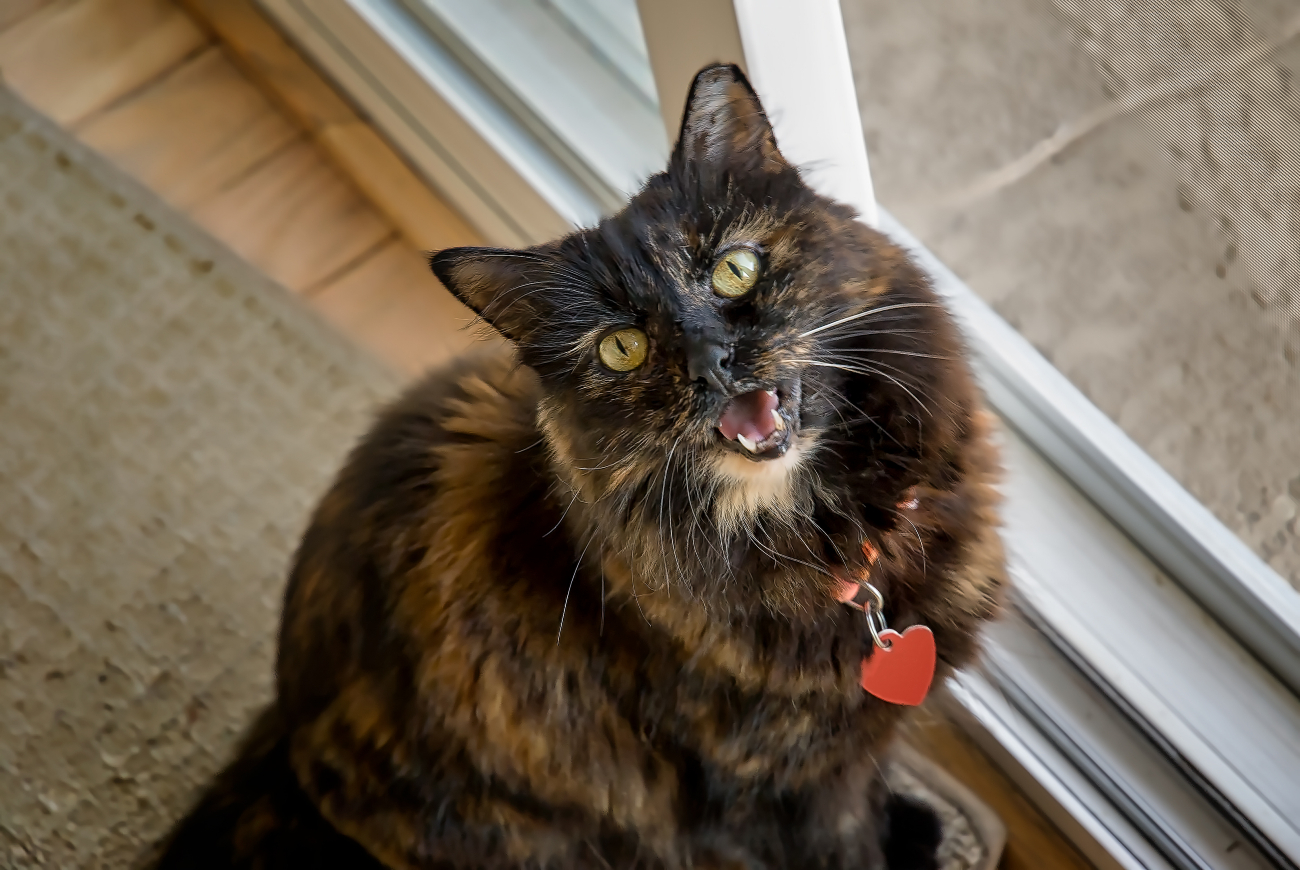
Remember, every cat is unique and their reasons for meowing can vary. While it's normal for cats to communicate through meowing, a sudden increase in their vocalisation can indicate that something is wrong.
Always pay attention to changes in your cat's behaviour and seek veterinary help if needed. After all, a healthy and happy cat makes a happy home!
Helpful Pages
Recent Posts
Pet Insurance Quote
- 98% claims paid *
- Claims paid directly to vets
- 24/7 vet video consultations
- Interest free monthly payments
